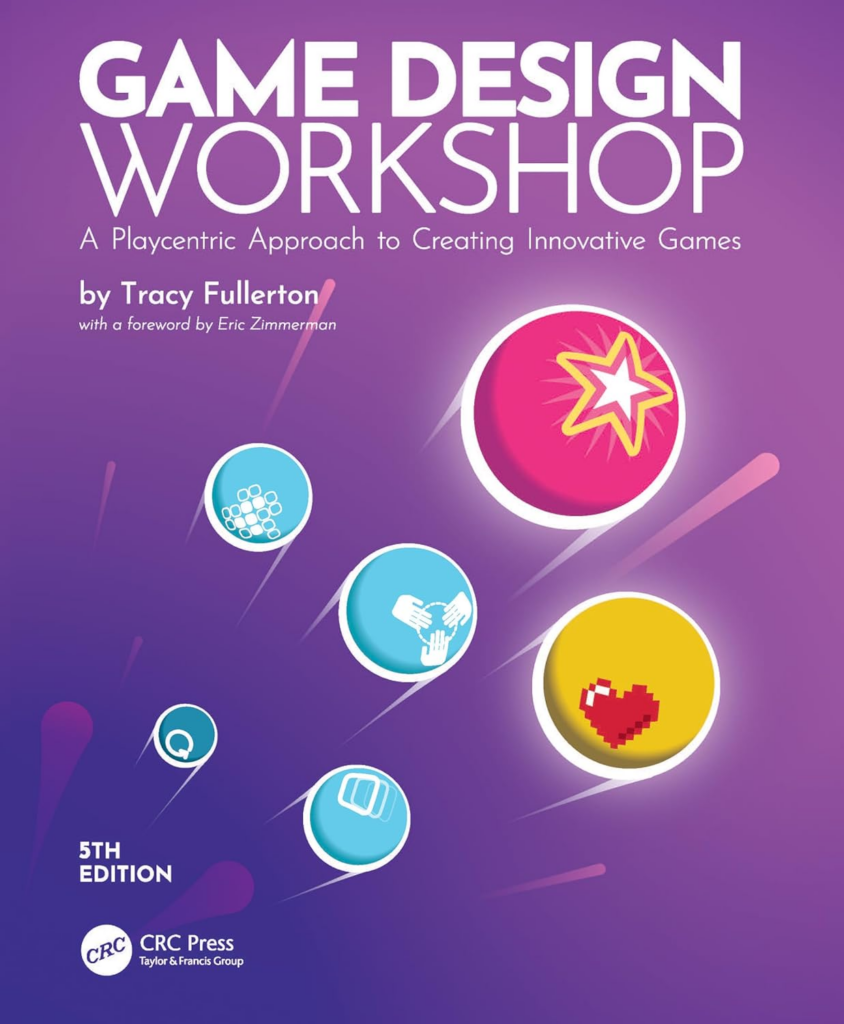MDST2508: Topics in Media Practice
Fall, 2025 – Meets Mondays, 2pm-4:30pm
[This course counts toward the MDST Practice of Media requirement!]
What does making games teach us about media?
This course is geared around the design of play — learning how to design and iterate designs, focusing on games and other playful, interactive media. In this class, students will gain experience developing multiple games for multiple platforms (digital and physical; ranging from video games to tabletop role-playing games), while also critically evaluating game design discourses. Each semester, this course will focus primarily on a different genre of game (interactive fiction, platformer, role-playing game, VR game, augmented reality game, etc.) or a different use of games (for learning, for political persuasion, for entertainment) with connections made to other genres.
For this semester, we will focus on games for impact — designing games intended to impact the world. Using games and playful media, we will engage with stories and systems to create systems intended to help teach, to help learn, to drive awareness for an issue, or to provide political commentary. As we develop our skills in designing within this approach to games, we will also be engaging with the tensions between narrative and game systems, designer discourses on design, as well as critical discourses on these media.
No experience with games is necessary! And no pre-existing interest in digital games is needed (we’ll actually spend most of the semester on non-digital games — board games, card games, role-playing games). Since this is an introduction to considering game design from a media studies perspective, we will start from the ground up. We’ll spend the bulk of the term designing multiple small games, utilizing multiple approaches to design. In the second half of the term, students will individually or in pairs pick a particular topic/design platform, and then work for several weeks to flesh out a complete prototype using iterative design. Student groups will be encouraged to dive into student interests, seeking out a local University or community group to help their game achieve its impact goals.
Throughout, we will engage with “games for impact” considered quite loosely — we’ll look at games intended to be used in schools, games that had entertainment intent that were repurposed for learning, games that serve as political agitprop, games that attempt to promote social issues, etc.
Our main texts will not be scholarly, but will be selections of multiple game design textbooks. There are a lot of these, and while we are not going to survey them comprehensively, we are going to sample a number in order to get an idea of how different approaches to game design lead to different kinds of games! While the final readings list will be finalized over the summer, likely course readings will draw from some of the following texts (in full or in selections):



Students with programming experience will be pushed to utilize those experiences in their designs. All students will be expected to delve into game design in multiple ways as well as critically evaluating gameplay throughout the term, though the vast majority of these initial game design experiences require no programming knowledge. Most importantly, students will need to be comfortable playing each others’ games as well as sharing their own creative work throughout the term as learning iterative game design will be the focus of the course. Students will learn how to provide and receive critique on playful designs throughout the term, refining prototypes through multiple cycles of design.
For further information, please contact Dr. Duncan at sean.duncan@virginia.edu.

